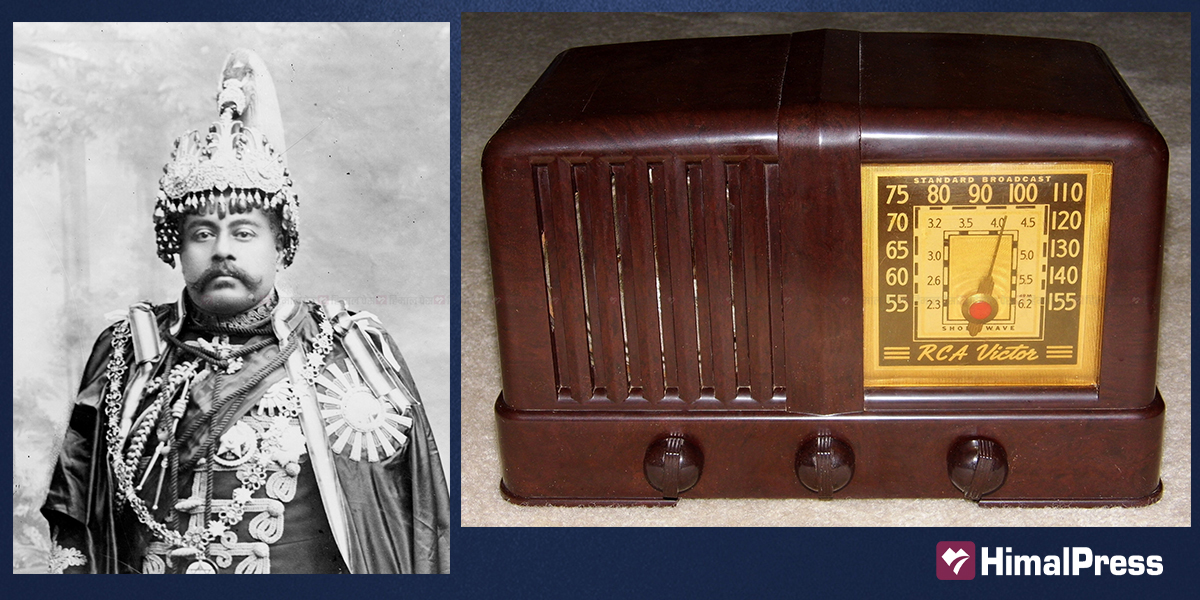 This combo picture shows the portrait of Juddha Shumsher and the radio set of that era.
This combo picture shows the portrait of Juddha Shumsher and the radio set of that era.
Chaitra 20, according to the Bikram Sambat calendar, is a significant date in Nepal’s history as it marks the establishment of the state-owned Radio Nepal. Although efforts to start radio broadcasting were made during the tenure of Rana ruler Mohan Shumsher, it was not until April 2, 1951, after the introduction of democracy, that Radio Nepal was finally established.
The exact date of when radio sets first entered Nepal and who listened to radio for the first time is uncertain. However, in his book ‘Anandamaya Akash’, writer Madan Mani Dixit claims that radio sets were introduced in Nepal in the summer of 1929. He writes that the radio set brought by his uncle Dev Mani Dixit could have been the seventh radio set to have entered Nepal at that time.
It is worth noting that Chandra Shumsher was the Prime Minister of Nepal during the period when radio sets were first introduced in the country in the late 1920s. However, after his demise in the winter of the same year, his brother Bhim Shumsher took over as the Prime Minister of Nepal. As Madan Mani Dixit wrote in his book, the radio brought by his uncle could have been the seventh in the country, indicating that there were already six radio sets in Nepal at the time. However, there is no evidence to suggest who brought these radio sets and when they were brought.
Following the death of Bhim Shumsher on September 1, 1932, his brother Juddha Shumsher was appointed as the Prime Minister of Nepal. In the mid-1930s, All India Radio began its service and the British Broadcasting Corporation (BBC) also started its service targeting territories colonized by Britain, including India. These two radio stations could be listened to even inside Nepal, which led to an increase in the number of radio sets brought into the country.
Indeed, bringing radio sets into Nepal during the Rana regime was a challenging task due to the authoritarian nature of the regime and the high cost of the equipment. The regime’s strict control over the smallest things meant that obtaining permission to own a radio set was a complicated process, and a license was required to do so.
As a result, the majority of the people who owned radio sets during that period were close to the Rana rulers. However, during Juddha Shumsher’s reign, more radio sets were introduced, particularly when World War II began.
The advent of World War II had a significant impact on the practice of listening to radio. In September 1940, Germany launched air raids on London, and this event led to Nepali people listening to German radio broadcasts, which eventually led to increased public support for Germany. Nepal had provided economic and military support to the British-led alliance in World War I, and it did so again during World War II. However, Juddha Shumsher and other Rana rulers feared that German radio broadcasts would sway public support towards Germany and away from the traditional British-led alliance.
As a strong supporter of Britain, Juddha Shumsher was concerned about any news or propaganda that could potentially harm the morale of the Nepali people. So, he ordered confiscation of all radio sets so that Nepalis won’t be affected by the propoaganda of Goebbels.
Sardar Bhim Bahadur Pandey has described the situation in his book ‘Tyas Bakhatko Nepal’ (Nepal at that time).
When rumors started spreading in Nepal that Germany would attack Britain and that a British defeat was inevitable, people started flocking to the few houses in Kathmandu that had radio sets. As rumors began to circulate that the defeat of Britain would also mean the defeat of the Rana rulers, Juddha Shumsher ordered the confiscation of radio sets from the homes of all but a few of his trusted people. The confiscated radio sets were then stored in Singha Durbar, the official residence of the prime minister of Nepal.
The British envoy also described the situation in the report sent to his government in 1940.
So great was the influence of german wireless propogandas on the minds, not only of the general public, but also on all members of the ruling family, other of course then His Highness thought it to remove this influence by ordering the handover of receiving sets owned by everybody except the Commander In Chief and Commanding Generals to the Police.
The move to confiscate the radio sets of all but the Commander-in-Chief and Commanding Generals illustrates the situation of Juddha Shumsher at the time. In the Rana regime, the Prime Minister’s main aides were a Commander-in-Chief, second in rank to him, and four other commanding generals of the West, East, South, and North. This meant that only Commander-in-Chief Padma Shumsher and commanding generals Mohan Shumsher, Babar Shumsher, Keshar Shumsher, and Bahadur Shumsher were allowed to own radio sets.
According to the British Ambassador’s report, even Juddha Shumsher’s personal secretary Marichiman Singh was not allowed to keep a radio set. Singh had also served as personal secretary to Chandra Shumsher and Bhim Shumsher and had a major say in foreign affairs matters for three decades, as per the British ambassadors deputed to Nepal. The fact that he wasn’t allowed to keep a radio at home is quite surprising.
The British envoy wrote in his report:
After the failure of the Germans against England, His Highness allowed some of the sets to be returned to selected important Nepali generals. It is understood that even His Highness private secretary Bada Kaji Marichiman Singh has not yet got back his receiving set.
After Germany was defeated, Juddha Shumsher returned radio sets to certain individuals. However, Marichiman Singh’s radio was not returned.
After the end of World War II, Juddha Shumsher abdicated his throne. Padma Shumsher, who was comparatively liberal, succeeded him. During his tenure, he allowed commoners to keep radio sets after acquiring a license from the government. Mohan Shumsher, who succeeded Padma, tried to formally start radio broadcasting in Nepal but failed.


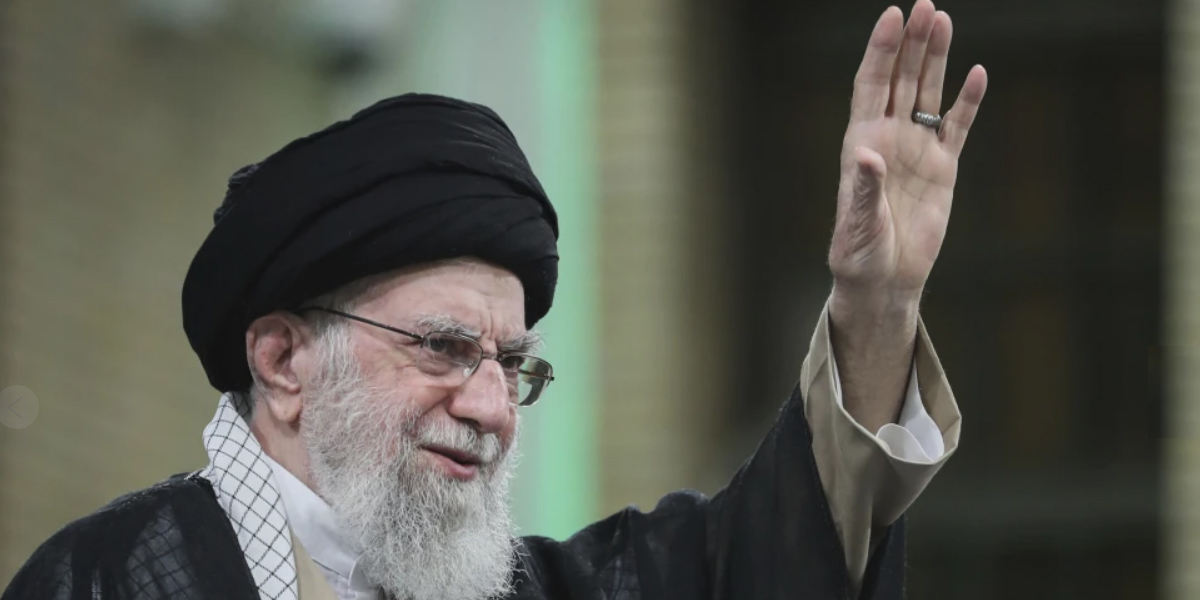
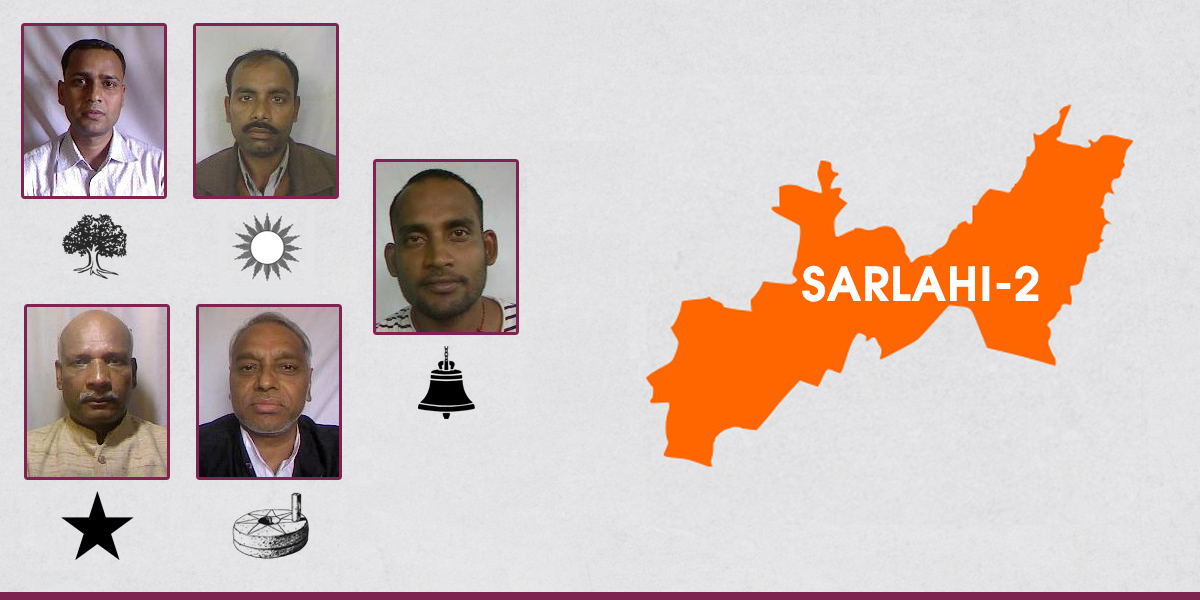


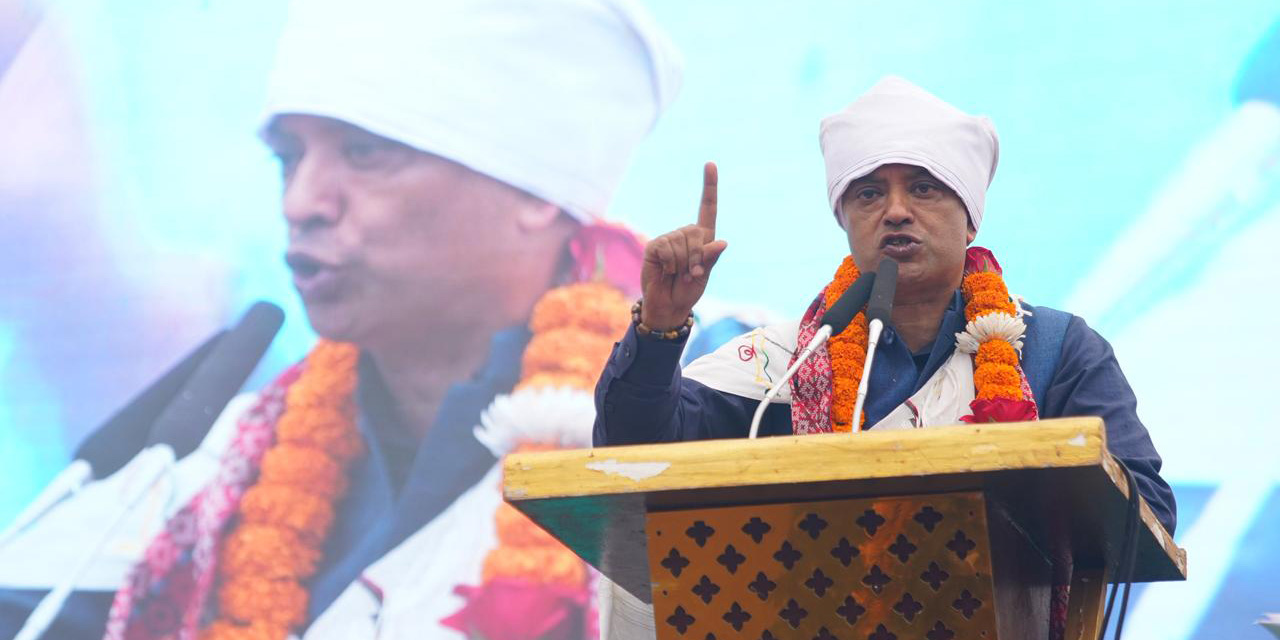
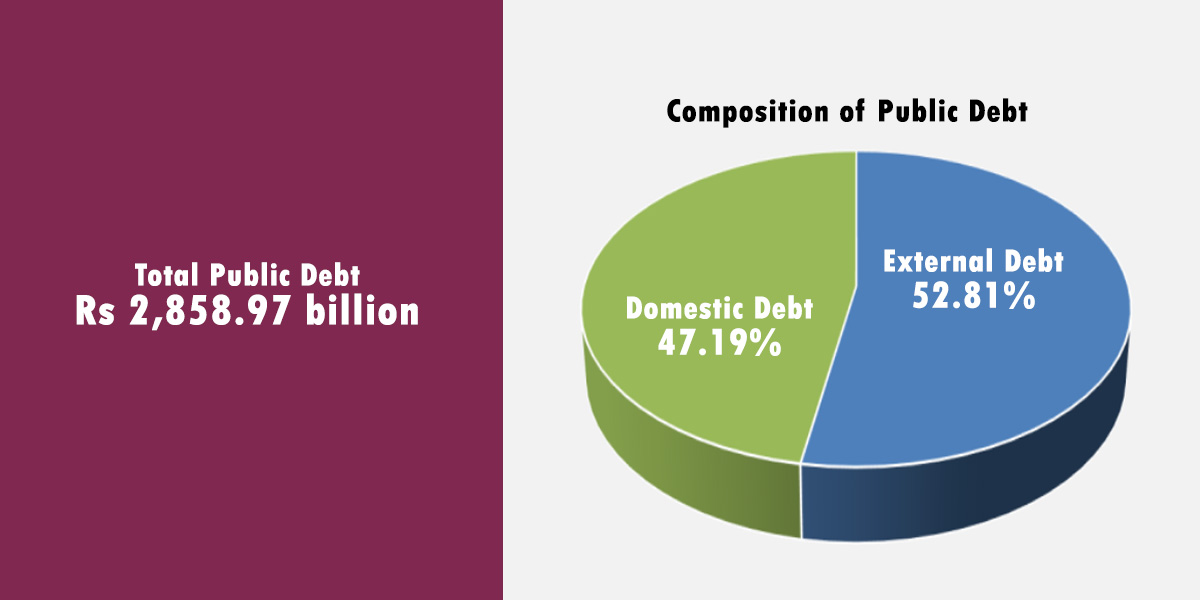
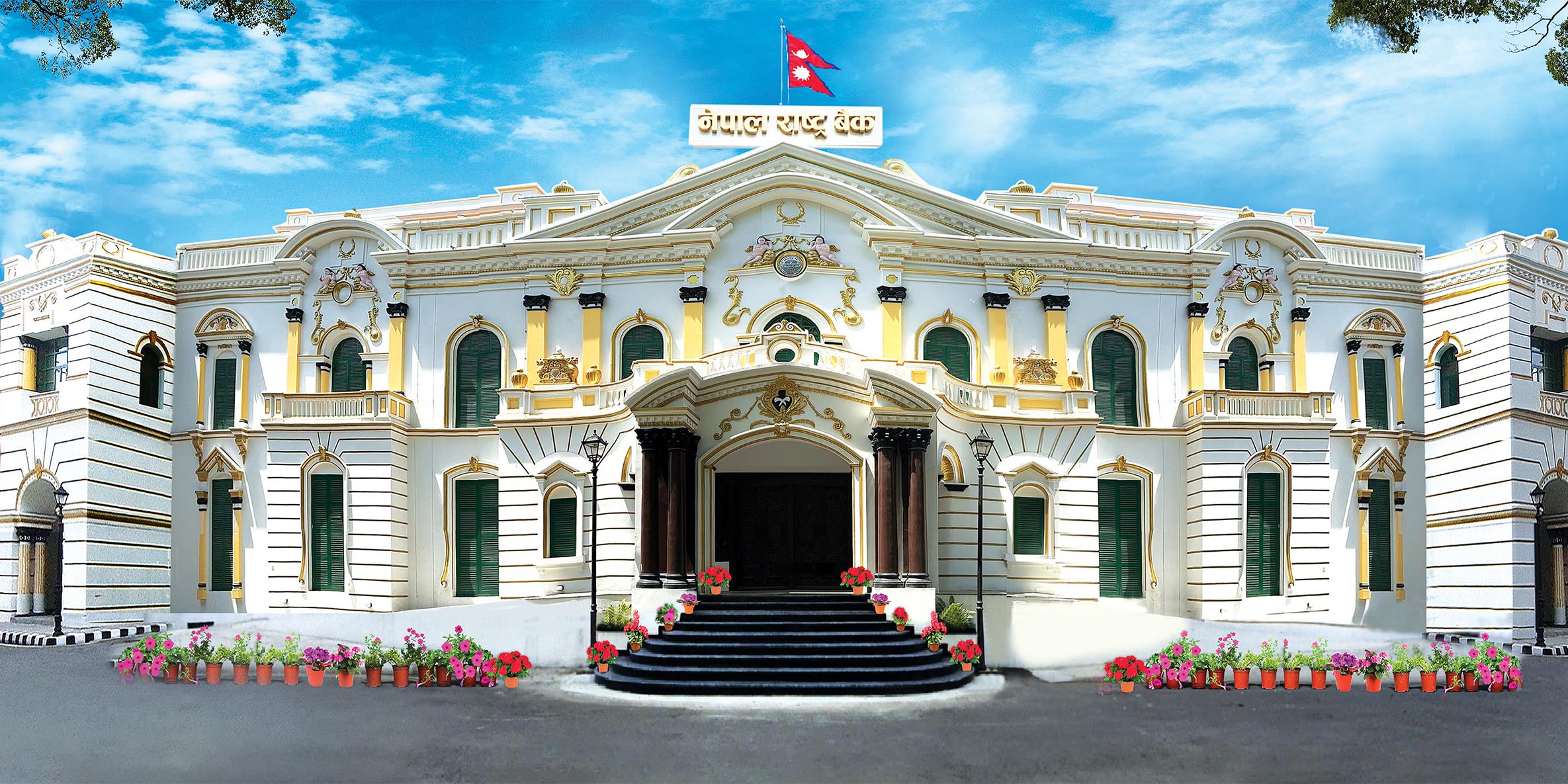



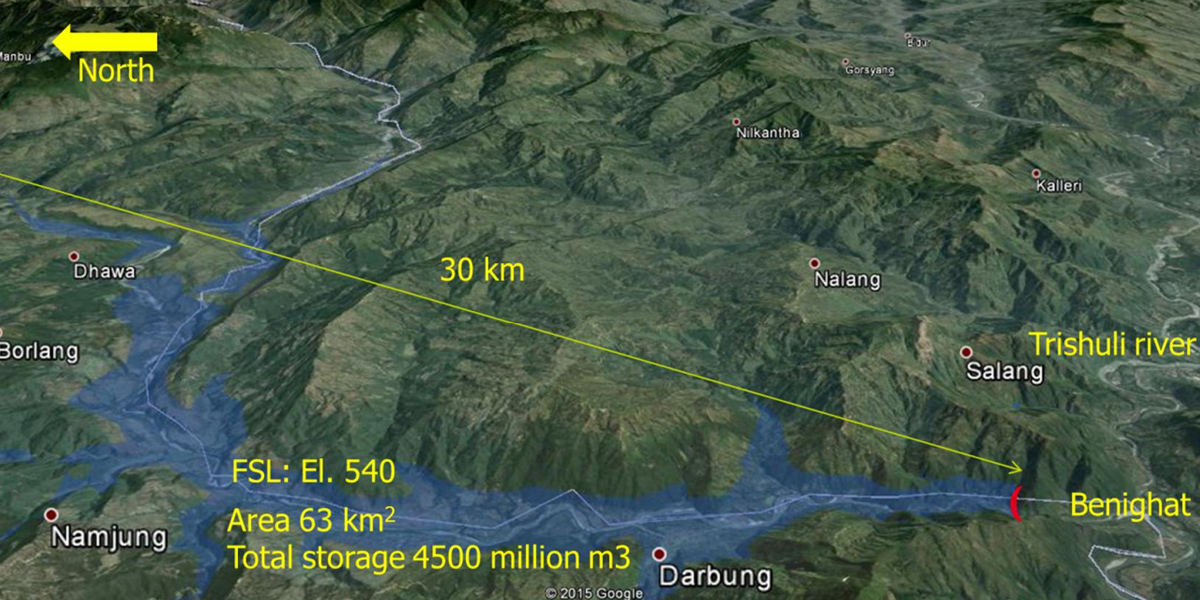

Interesting article to read. It provides the ruling nature of that time. Santoshjee – keep on writing such article. You are contributing to the enrichment of current generation of the country.
Interesting article to read. It provides the ruling nature of that time. Santoshjee – keep on writing such article. You are contributing to the enrichment of knowledge of current generation of the country.